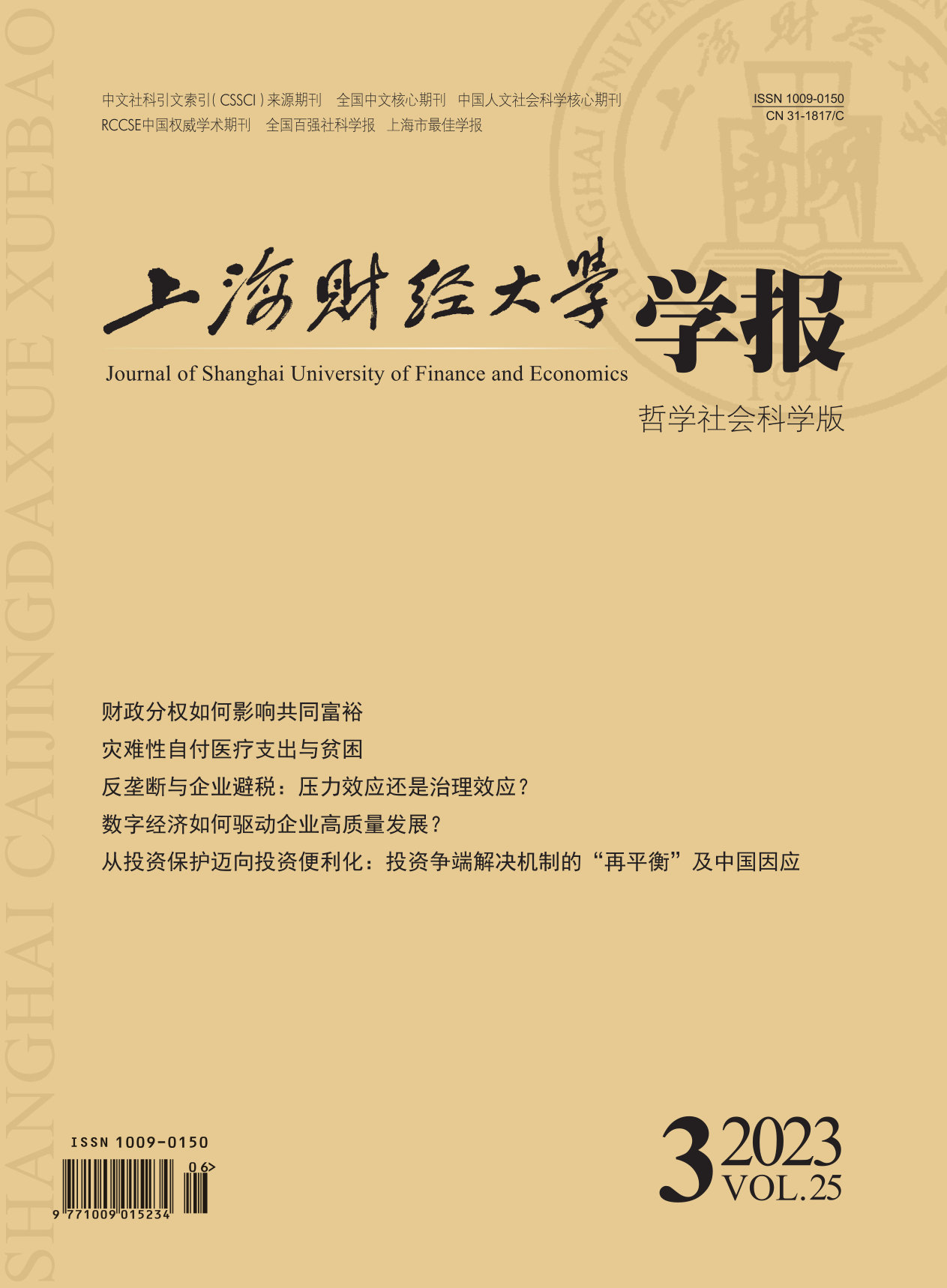Promoting common prosperity in high-quality development is China’s current and future work focus and goal, and achieving common prosperity is inseparable from the exertion of fiscal function. As an institutional arrangement to adjust the relationship between central and local financial power, fiscal decentralization determines the efficiency and level of the resource allocation of local governments, and thus has an important impact on promoting common prosperity. According to the theoretical connotation of common prosperity in the new development stage, the evaluation index system of common prosperity in the new era is constructed from the five dimensions of production efficiency, overall prosperity, coordinated development, achievement sharing and ecological welfare. The entropy method is used to measure the level of common prosperity of 30 provinces in China from 2000 to 2019. On this basis, the impact of fiscal decentralization on common prosperity and its mechanism are empirically investigated, and the “appropriate range” of fiscal decentralization is further confirmed. The research finds that fiscal decentralization helps to improve the level of common prosperity, but there is a certain regional heterogeneity. That is, fiscal decentralization has a more obvious role in improving the level of common prosperity in underdeveloped regions than in developed regions. From the sub-indicators of common prosperity, fiscal decentralization can significantly improve the level of overall prosperity, achievement sharing and ecological welfare, but has no significant impact on production efficiency and coordinated development. Further mechanism test shows that fiscal decentralization can promote the improvement of common prosperity by sacrificing the efficiency of capital resource allocation and optimizing the efficiency of labor resource allocation, which indicates that the resource allocation effect of fiscal decentralization plays an important role in promoting common prosperity. Finally, the impact of fiscal decentralization on the level of common prosperity has a dual threshold effect, which is manifested in the trend of rising first and then falling. That is, fiscal decentralization and common prosperity have an inverted U-shaped relationship, and fiscal decentralization has an “appropriate range” in promoting common prosperity. Therefore, we should properly improve the financial autonomy of local governments, give better play to the resource allocation effect of fiscal decentralization, fully grasp the “appropriate range” of fiscal decentralization, and strengthen the balance role of central transfer payments, so as to solidly promote the road of common prosperity for all people in a multi-dimensional way.
 / Journals / Journal of Shanghai University of Finance and Economics
/ Journals / Journal of Shanghai University of Finance and EconomicsJournal of Shanghai University of Finance and Economics
LiuYuanchun, Editor-in-Chief
ZhengChunrong, Vice Executive Editor-in-Chief
GuoChanglin YanJinqiang WangWenbin WuWenfang, Vice Editor-in-Chief
How does Fiscal Decentralization Affect Common Prosperity: Also on the Appropriate Range of Decentralization
Journal of Shanghai University of Finance and Economics Vol. 25, Issue 03, pp. 3 - 17 (2023) DOI:10.16538/j.cnki.jsufe.2023.03.001
Summary
References
Summary
Cite this article
Guo Weijun, Li Guangqin. How does Fiscal Decentralization Affect Common Prosperity: Also on the Appropriate Range of Decentralization[J]. Journal of Shanghai University of Finance and Economics, 2023, 25(3): 3-17.
Export Citations as:
For
ISSUE COVER
RELATED ARTICLES




 7283
7283  6512
6512

